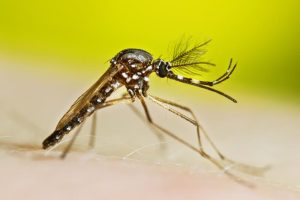NewsDesk @bactiman63
The Taiwan Department of Disease Control and Prevention (CDC) announced today three new local dengue fever deaths last week. The ages ranged from their 40s to their 70s. All three were male. All three had underlying diseases.

According to statistics from the Department of Disease Control and Prevention, there were 2,127 new local cases of dengue fever in the country last week (September 5 to September 11 this year).
According to the CDC, as of September 11 this year, there have been a total of 6,464 local cases in the country, with 5,760 cases distributed in Tainan City, 340 cases in Yunlin County, 243 cases in Kaohsiung City, 30 cases in Pingtung County, and 16 cases each in Chiayi County and Taoyuan City. In addition, there are 13 cases each in New Taipei City and Taipei City, 12 cases in Taichung City, 8 cases in Hsinchu City, 4 cases in Hsinchu County, 3 cases in Changhua County, 2 cases each in Miaoli County, Nantou County and Chiayi City.
The Department of Disease Control and Prevention reminds that the local dengue fever epidemic continues. As the number of cases increases, severe cases and deaths also appear one after another. The public is requested to cooperate with the government in implementing prevention and control work, implement “patrol, dump, clean, and brush” and check whether there is stagnant water around the home. Drain the stagnant water. The walls of the water storage container should be brushed at least once a week. Please turn it upside down or clean it when not in use to reduce the breeding of vector mosquitoes. Wear light-colored long-sleeved clothes and pants when engaging in outdoor activities, and use water-containing materials approved by government agencies. Mosquito repellents with active ingredients such as DEET, Picaridin or IR-3535 can reduce the chance of mosquito bites.
Subscribe to Outbreak News TV on YouTube
Those who have been diagnosed with dengue fever, those in high-risk groups for dengue fever (such as the elderly, pregnant women, infants, those with underlying diseases such as diabetes, renal failure, chronic hemolytic disease, obesity, or those with specific socioeconomic conditions such as living alone or living in remote areas), and those with specific socioeconomic conditions People with a history of travel in endemic areas should pay attention to their own health conditions. If they develop fever, headache, posterior orbital pain, muscle and joint pain and other suspected symptoms, they must seek medical treatment as soon as possible and inform the doctor of their travel and activity history. Also ask the doctor to inquire about TOCC , use the dengue fever NS1 rapid screening reagent to assist diagnosis in a timely manner, and pay attention to whether the patients have warning signs of dengue fever, including abdominal pain and tenderness, persistent vomiting, mucosal bleeding, drowsiness and restlessness, etc., and provide appropriate medical treatment. If you are infected with dengue fever, you must follow the doctor’s recommendations for treatment, take medication, replenish fluids and get plenty of rest, and use mosquito nets or mosquito repellents to avoid further mosquito bites and reduce the risk of disease transmission.
- Michigan reports 1st case of Eastern equine encephalitis (EEE) in a horse this year
- Nipah confirmed in 3 people in Kerala state: Minister Veena George
- India: Deaths from suspected Nipah virus in Kerala
- Crimean-Congo hemorrhagic fever vaccine clinical trial launched: University of Oxford
- Romania: Human anthrax cases reported in Mures County
- Philippines: Bacolod City reports more than 200% increase in leptospirosis
- The effectiveness of mpox vaccine: Study
- Canada: E.coli outbreak declared for Calgary daycare operator


4 thoughts on “Taiwan reports more dengue deaths, Local cases top 6,000”